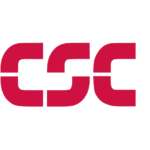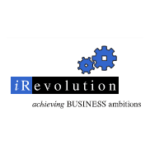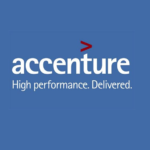– CIO – CTO – ADVISER – NXD – MENTOR – EDUCATOR –
Tony Larcombe
Experienced CTO, inspirational educator, and visionary business technology strategist with 30 years of transformational leadership across Europe, North America, and Asia Pacific.
Transformational Leadership
With over three decades of experience, I've led technology transformations across multiple continents, working with companies from startups to global enterprises.
- Created AI candidate matching system using Bayesian mathematics achieving 95%+ first-time automated matching
- Successfully executed MBO, two IPOs, and numerous company acquisitions
- Built the World's first true SaaS solution
- Extensive experience in network design, data migration, and business strategy
Current Focus
Since leaving mainstream business in 2009 to focus on my fractional roles as C-level board member and advisor, I've spent over 16 years helping companies navigate complex technology challenges.
Key Roles:
- CTO 4Square Capital
- CTO & Founder 4Square Innovations
- Co-Founder & CTO at Demetech Global
- Technology Advisor for multiple startups
- Non-Executive Director and Mentor
- Educator and Technology Strategist
Areas of Expertise
Technology Strategy
Architecting comprehensive technology roadmaps that seamlessly align with business objectives and accelerate innovation. With three decades of experience across enterprise transformations, I specialize in translating complex technical concepts into strategic business value. From legacy system modernization to cutting-edge AI implementation, I develop scalable strategies that drive competitive advantage and sustainable growth in rapidly evolving markets.
Executive Leadership
Guiding C-level executives through complex technology decisions and organizational transformation initiatives. With extensive board-level experience across multiple industries, I provide strategic leadership that bridges the gap between technical innovation and business objectives. From startup scaling challenges to enterprise digital transformation, I help leadership teams navigate critical technology decisions that drive sustainable competitive advantage and operational excellence.
Business Transformation
Leading comprehensive organizational change through strategic technology adoption and digital transformation initiatives. Specializing in cultural transformation alongside technical implementation, I help organizations modernize legacy systems, optimize operational processes, and build digital-first capabilities. My approach ensures seamless transitions that minimize disruption while maximizing employee engagement and delivering measurable business outcomes across all organizational levels.
Startup Advisory
Mentoring early-stage companies through critical technology challenges and sustainable scaling strategies. From seed-stage startups to Series C companies, I provide hands-on guidance in technology architecture, team building, and strategic planning. My advisory approach focuses on building robust technical foundations that support rapid growth while avoiding common scaling pitfalls that can derail promising ventures in competitive markets.
SaaS Development
Building scalable software-as-a-service platforms from initial concept through global deployment and market expansion. As a pioneer in SaaS development with experience creating the world's first true SaaS solution, I architect cloud-native platforms that handle millions of users while maintaining performance and security. My expertise spans multi-tenant architecture, subscription billing systems, global infrastructure deployment, and regulatory compliance across international markets.
AI & Machine Learning
Pioneering artificial intelligence solutions including advanced candidate matching systems achieving 95%+ accuracy rates through sophisticated Bayesian mathematics. My AI expertise encompasses machine learning model development, natural language processing, and predictive analytics applications. From recruitment automation to business intelligence systems, I develop practical AI implementations that deliver measurable results while maintaining ethical standards and regulatory compliance in real-world business environments.
Ready to Transform Your Technology?
Whether you're a startup looking for strategic guidance or an established company seeking transformation, I'm here to help you navigate the complex world of technology.
🤖 AI-Powered Website
This entire website - from design and look-and-feel through to content creation and blog posts - is managed by a collection of specialized AI agents, each handling individual parts of the workflow. Instead of relying on bloated, slow CMS systems like WordPress, these agents produce fast, optimized HTML and automatically deploy pages to the server.
The AI agent workflow includes:
- Design Agent - Handles styling, layout, and visual consistency
- Content Agent - Creates and optimizes blog posts and page content
- Structure Agent - Manages navigation, indexes, and site architecture
- Deployment Agent - Automatically uploads and deploys changes to the server
This approach eliminates the overhead of traditional CMS platforms, resulting in lightning-fast load times, better security, and seamless content management - all while maintaining the flexibility to evolve and improve continuously.
Feel free to contact me if you want to discuss how to implement this AI agent workflow system within your organization.









